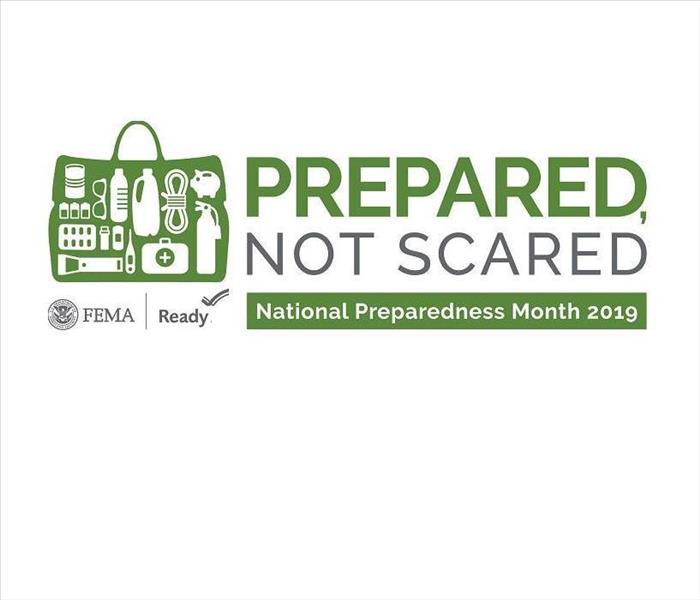National Preparedness Month 2019
8/27/2019 (Permalink)
National Preparedness Month, recognized each September, provides an opportunity to remind us all to prepare ourselves, our families, and our businesses for each kind of disastrous situation we may have to endure. The overarching theme for this year is “Prepared, Not Scared" and each week we are encouraged to focus on specific emergency preparedness tasks.
Week 1: September 1st - 7th
Save early for disaster costs.
- Review your insurance documents to make sure you’re properly protected following a disaster. If you do not have flood insurance, then make an appointment with your insurance agent to discuss your options. Remember, many who believed their home would never experience flooding were surprised in 2016 when massive amounts of rain caused heavy flooding in Baton Rouge, Covington, and other cities throughout Louisiana.
- According to the Federal Reserve, 40% of Americans do not have $400 in savings. Are you financially prepared in case of an emergency? Visit https://www.ready.gov/financial-preparedness to learn helpful disaster financial planning tips. It is also a good practice to keep some cash on hand during an emergency in case ATMs or your local bank are affected by the storm.
Week 2: September 8th – 14th
Make a plan to prepare for disasters.
Write down your emergency plans. Create one emergency plan for your family that is inclusive of their specific needs. Families with special needs may require additional planning. Discuss and practice the plan with your family members.
Your family emergency plan should answer the following four questions:
- How will I receive my emergency alerts and warnings?
- What is my shelter plan?
- What is my evacuation route?
- What is family/household communication plan?
Also, part of your home plan should include making an emergency supplies kit. Be prepared for a power outage by having at least three days’ worth of food and water for each person.
Create an additional plan for your office and practice it with your employees. As a business owner or an office manager, your plan should include contact information for each employee and identify whether the employee plans on evacuating during a storm.
Week 3: September 15th – 21st
Teach youth to prepare for disasters.
Discuss ways your children can be prepared for an emergency while at home and when away from home. If your child has a cell phone, then make sure they are signed up for local emergency alerts. Visit https://www.ready.gov/youth-preparedness for more information regarding youth preparedness.
Week 4: September 22nd – 30th
Get involved in your community’s preparedness.
Every community and major city have volunteer organizations focused on disaster response and emergency planning. To locate an organization in your community visit the websites:
https://www.redcross.org/volunteer/become-a-volunteer.html






 24/7 Emergency Service
24/7 Emergency Service
